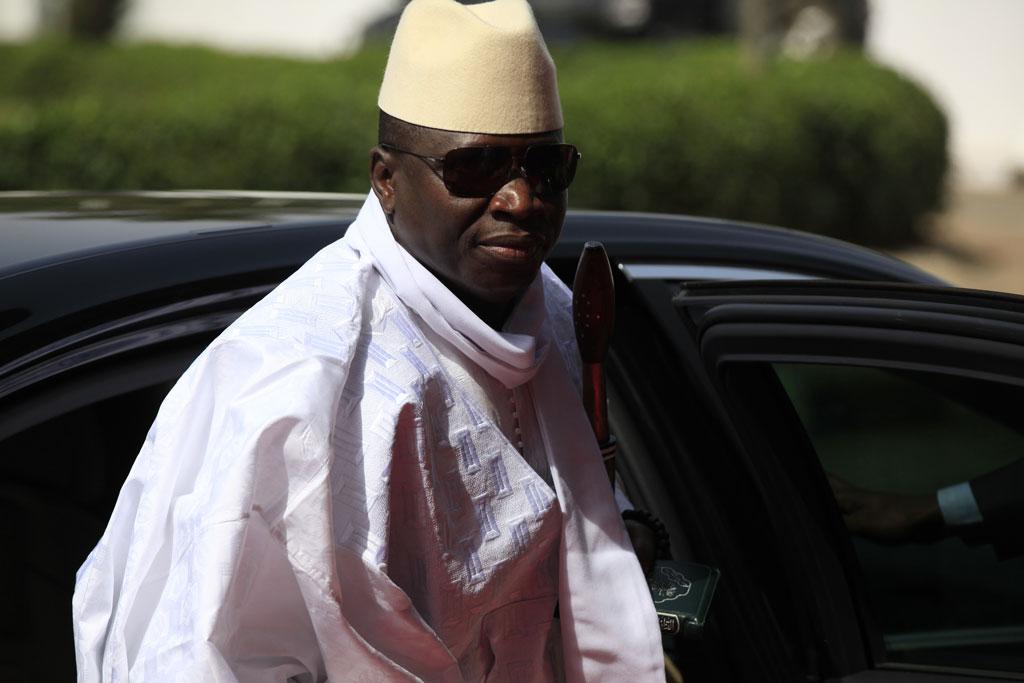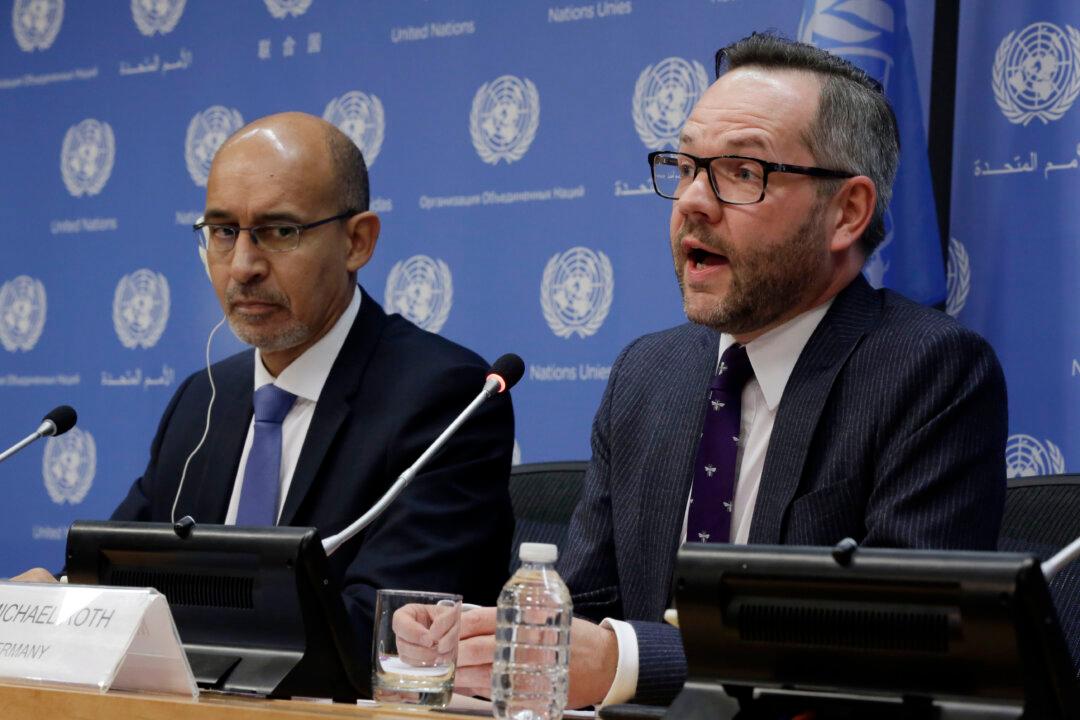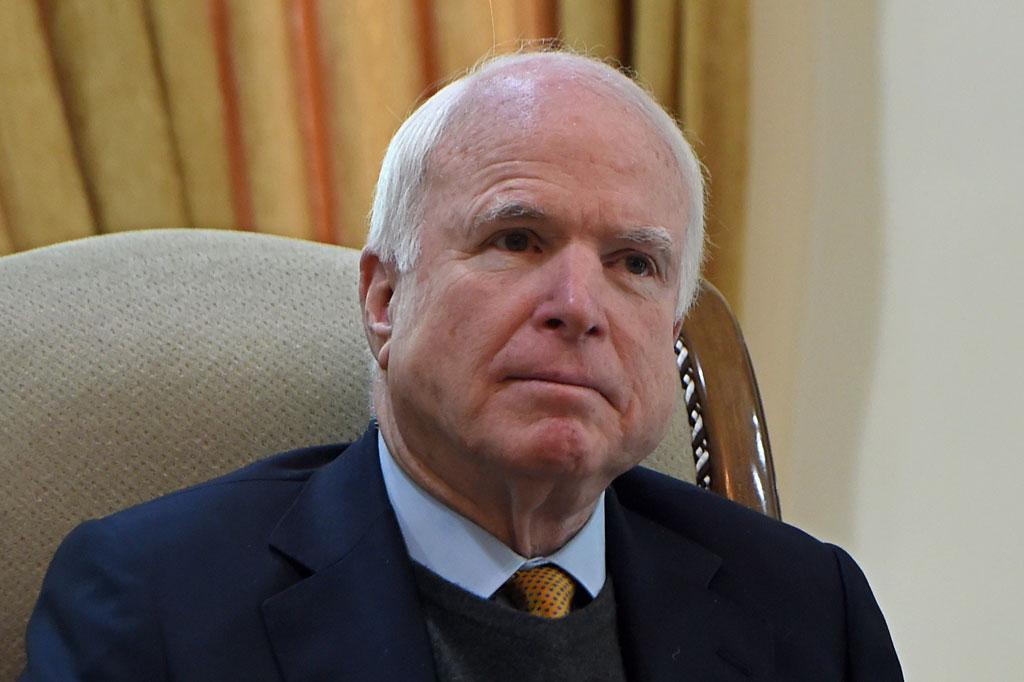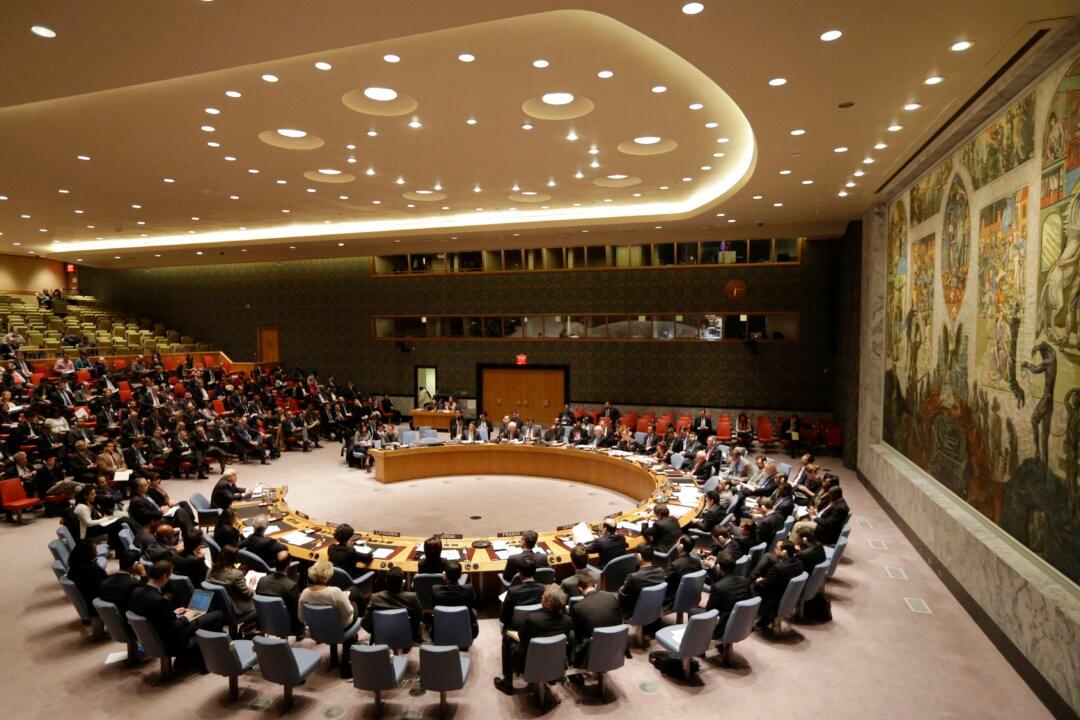UNITED NATIONS—The U.N. Security Council on Wednesday condemned the coup attempt “against the legal and democratic institutions” in Gambia.
Chad’s U.N. Ambassador Mahamat Zene, the current council president, told reporters after a closed-door briefing by U.N. political chief Jeffrey Feltman that members “welcomed the normalization of the situation in the country.”
Heavy gunfire rang out Tuesday near the presidential palace in the tiny West African nation while President Yahya Jammeh, who came to power in a 1994 coup when he was 29 years old, was in France. He has reportedly returned to Gambia.
U.N. Secretary-General Ban Ki-moon also reiterated the U.N.’s “principled condemnation of all attempts to seize power through unconstitutional means,” U.N. spokesman Farhan Haq said.
Referring to reports that indicate the situation in the capital of Banjul is calm, Ban called for all parties “to exercise restraint and to refrain from further violence,” he said.
The U.N. chief encourages “a transparent investigation” into Tuesday’s events that respects human rights, due process and the rule of law, Haq said.
Zene, the council president, said Ban’s special representative for West Africa, Mohammed Ibn Chambas, will visit Gambia soon and report back to members on the situation.
Gambia is a small former British colony surrounded by Senegal on both its northern and southern borders. Human rights activists have long criticized Jammeh’s regime as repressive, charging it targets political dissidents, journalists, gays and lesbians.
Jammeh is one of Africa’s most vocal anti-gay leaders and has previously threatened to behead sexual minorities found in his country. The U.S. government recently removed Gambia from a trade agreement in response to human rights abuses, including a law signed in October that imposes life imprisonment for some homosexual acts.
Jammeh also drew swift condemnation from activists in 2007 after he insisted that HIV-positive patients stop taking their antiretroviral medications, claiming he could cure them with an herbal body rub and bananas.
From The Associated Press




